There have been many great coaches throughout the history of football, but only a few are considered legends for their great contributions and far-reaching influence. Sir Alex Ferguson, Joachim Löw, José Mourinho, Jürgen Klopp, Pep Guardiola, Carlo Ancelotti, Arsène Wenger, Diego Simeone, and Marcelo Bielsa are just a few of the names that represent the talent, innovation, and unwavering passion for the game. Each has not only won numerous titles but also left a unique tactical mark, contributing to the shaping and development of the king of sports for generations. The stories of their careers and achievements will be an endless source of inspiration for football fans around the world. Join Wintips to explore the list of the top 7 best football coaches of all time through the following article!
Top 7 best football coaches of all time
1. Sir Alex Ferguson
Sir Alexander Chapman Ferguson, born on 31 December 1941, is a Scottish former footballer and football manager, best known for his role as manager of Manchester United from 1986 to 2013. He is widely regarded as one of the greatest football managers of all time and has won more trophies than any other manager in football history. Ferguson is often credited with appreciating young talent during his time at Manchester United, particularly during the 1990s with the "Class of '92", a group of players who helped turn the club into one of the richest and most successful football teams in the world.
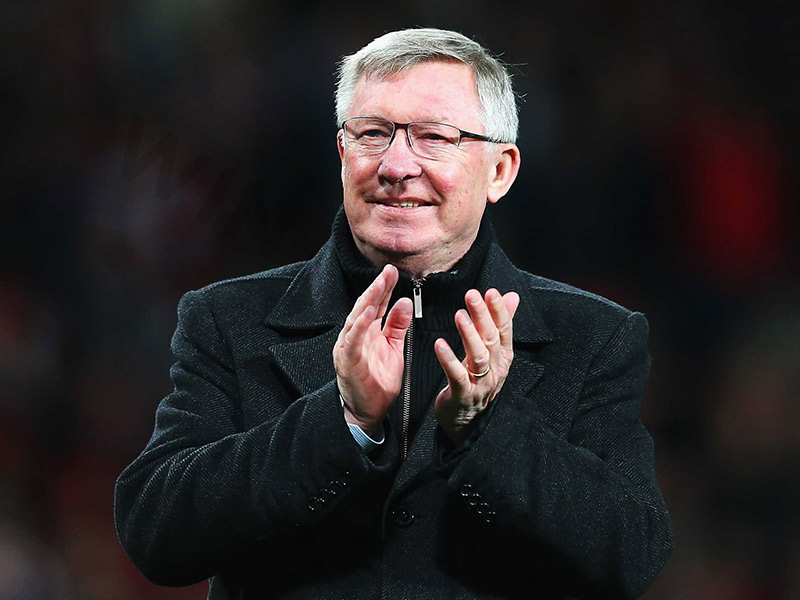
Ferguson was named the manager of Manchester United in November 1986. Over his 26-year tenure at Manchester United, he secured 38 trophies, which included 13 Premier League titles, five FA Cups, and two UEFA Champions League trophies. Ferguson was knighted in the 1999 Queen's Birthday Honours for his services to football. Ferguson is Manchester United's longest-serving manager, having surpassed Sir Matt Busby's record on 19 December 2010. He concluded his managerial career after the 2012–13 season, having secured the Premier League title in his last year.
2. Joachim Low
Joachim Löw, born on February 3, 1960, is a German football coach and former midfielder. His playing career began in 1978 with SC Freiburg in Germany's second division. Löw had three stints at Freiburg, where he enjoyed his best form, scoring 17 goals in the 1983-1984 season. He also played briefly for VfB Stuttgart, Eintracht Frankfurt, and Karlsruher SC in the Bundesliga but struggled to make a significant impact at the top level. Despite his mixed success as a player, Löw transitioned into coaching, where he made his mark.
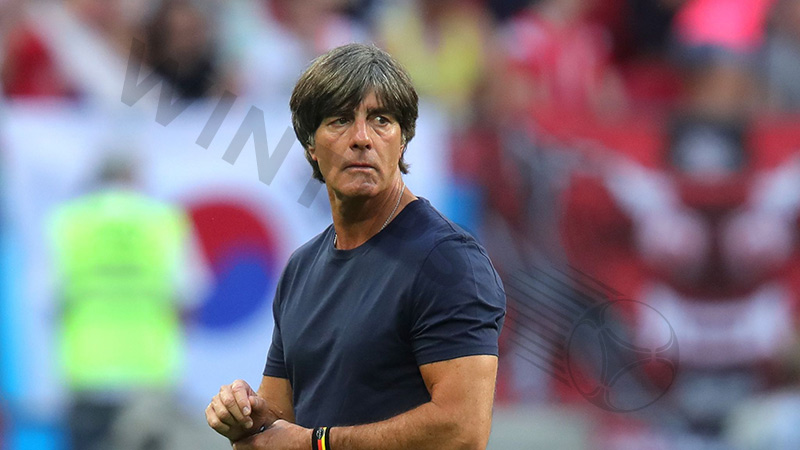
As the coach of the German national team, Löw guided Germany to the pinnacle of football, winning the 2014 FIFA World Cup in Brazil. However, his later tenure faced criticism, particularly during the 2020–2021 UEFA Nations League campaign. Despite decent group-stage performances against Spain, Switzerland, and Ukraine, Germany's shocking 0-6 loss to Spain in Seville marked a low point, which UEFA described as a historic disaster. This was Germany's worst defeat since an 8-3 loss to Hungary in the 1954 World Cup group stage and a 0-6 loss to Austria in 1931. The result added to a period of decline under Löw, including group-stage exits at the 2018 World Cup and poor showings in consecutive Nations League campaigns.
Despite mounting criticism and calls for change, the German Football Association maintained its support for Löw during this challenging phase. Team manager Oliver Bierhoff reaffirmed confidence in Löw, stating, "This defeat will not change anything. We still trust Löw, and there is no need to doubt that." While Löw's legacy is anchored by his World Cup triumph, his later struggles illustrate the challenges of maintaining success at the highest level.
3. Jose Mourinho - Special person
Josep "Pep" Guardiola Sala (born 18 January 1971) is a Spanish football manager and former player, widely considered one of the greatest football coaches in history. Currently managing Manchester City, Guardiola holds records for the most consecutive league wins in La Liga, Bundesliga, and Premier League. As a player, he excelled as a defensive midfielder, known for his deep-lying playmaking. Spending most of his career at Barcelona, Guardiola was part of Johan Cruyff’s iconic "Dream Team," winning the club’s first European Championship in 1992 and four straight La Liga titles (1991–1994). He captained Barcelona from 1997 until 2001 and later played for clubs like Brescia, Roma, Al-Ahli, and Dorados de Sinaloa. Internationally, he earned 47 caps for Spain and participated in the 1994 FIFA World Cup and UEFA Euro 2000.
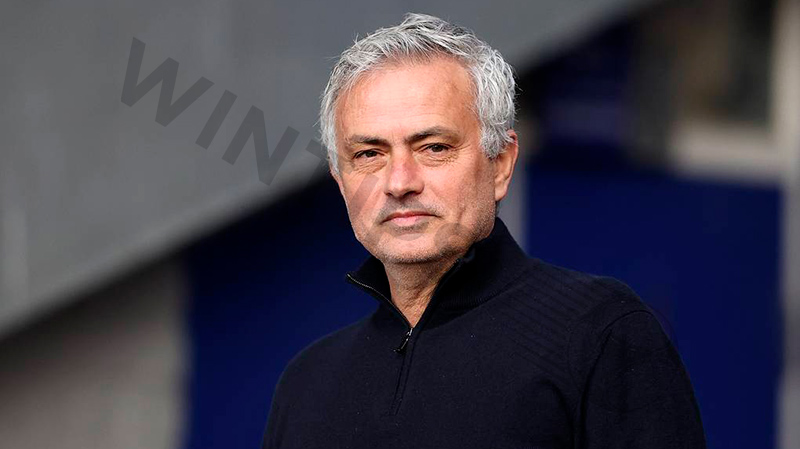
Guardiola began his coaching career with Barcelona B, winning the Tercera División before taking charge of the first team in 2008. In his debut season, he led Barcelona to a historic treble—La Liga, Copa del Rey, and UEFA Champions League—becoming the youngest manager to win the European title. His tenure at Barcelona established a golden era, which included another Champions League victory in 2011. That same year, he received the Catalan Parliament’s Gold Medal, Catalonia's highest honor, for his contributions to football. Guardiola’s innovative tactics, influenced by Cruyff, revolutionized modern football.
After a successful stint at Bayern Munich, Guardiola joined Manchester City in 2016. He guided the club to a record-breaking 100-point Premier League campaign in 2018 and a historic domestic treble in 2019. Known for his tactical brilliance and high-intensity style, Guardiola’s legacy as a transformative figure in football continues to grow.
4. Jürgen Klopp - The Ordinary
Jürgen Norbert Klopp (born 16 June 1967) is a German professional football manager and former player who is currently the manager of Liverpool. He is universally considered one of the greatest football managers globally. Klopp took over as manager of Liverpool in 2015. He led the club to consecutive UEFA Champions League finals in 2018 and 2019, winning the latter to claim Liverpool's first—and sixth—title.
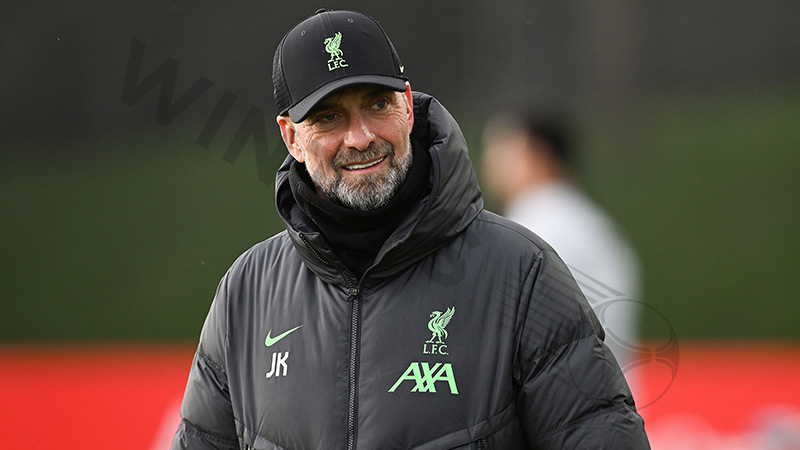
Klopp's side finished second in the 2018–19 Premier League, amassing 97 points, which was then the third-highest total in the history of the English top flight and the most by a team that did not win the title. The following season, Klopp won the UEFA Super Cup and Liverpool's first FIFA Club World Cup, and then delivered Liverpool's first Premier League title with a club-record 99 points, breaking several top-flight records. These achievements saw him win back-to-back FIFA Coach of the Year awards in 2019 and 2020.
5. Pep Guardiola
Josep "Pep" Guardiola Sala (born 18 January 1971) is a Spanish football manager and former professional player, widely recognized as one of the best football coaches of all time. Currently managing Manchester City in the Premier League, Guardiola holds the record for the most consecutive league wins in the histories of La Liga, Bundesliga, and the Premier League. As a player, he was a defensive midfielder known for his deep-lying playmaking role. Guardiola spent most of his career at Barcelona, where he was part of Johan Cruyff's iconic "Dream Team," winning the club's first European Championship in 1992 and four straight La Liga titles (1991–1994). He captained Barcelona from 1997 until his departure in 2001 and later played for clubs like Brescia, Roma, Al-Ahli, and Dorados. Internationally, Guardiola earned 47 caps for Spain and represented his country at the 1994 FIFA World Cup and UEFA Euro 2000.
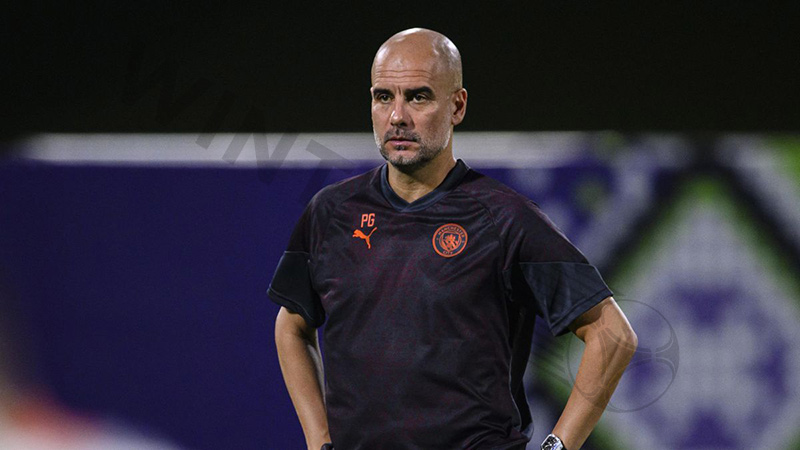
After transitioning to coaching, Guardiola began with Barcelona B, where he led the team to a Tercera División title before taking charge of the senior team in 2008. In his debut season, he guided Barcelona to a historic treble, winning La Liga, Copa del Rey, and the UEFA Champions League, and becoming the youngest manager to achieve the European triumph. His tenure at Barcelona brought multiple titles, including another Champions League in 2011, which earned him the Catalan Parliament's Gold Medal. Guardiola went on to manage Bayern Munich before joining Manchester City in 2016. At City, he achieved unprecedented success, including a record-breaking 100-point Premier League season in 2018. The following year, he made history as the first manager to secure a domestic treble in English football, cementing his legacy as a tactical genius.
6. Carlo Angelotti
Carlo Ancelotti Cavaliere, born on 10 June 1959, is an Italian professional football manager and former player who is the manager of La Liga club Real Madrid. Ancelotti has won the UEFA Champions League three times (twice with Milan and once with Real Madrid) and is one of only two managers to have managed four finals. He has won the FIFA Club World Cup twice, managing Milan and Real Madrid. Ancelotti is also one of only seven people to have won the European Cup or Champions League as both a player and a manager. He is considered one of the best and most successful managers of all time.
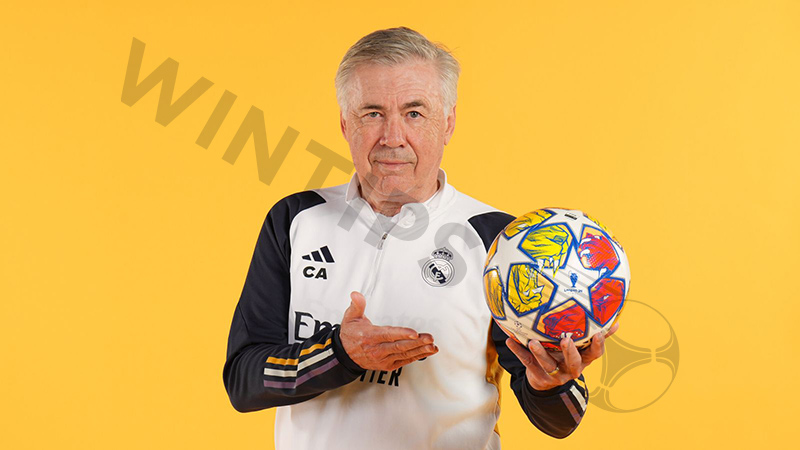
Nicknamed Carletto, Ancelotti played as a midfielder and began his career with the Italian club Parma, helping the club promote to Serie B in 1979. He moved to Roma the following season, where he won a Serie A title and four Coppa Italia titles, and also played for Milan in the late 1980s, with which he won two league titles and two European Cups, among other honors. At the international level, he played for the Italian national team 26 times, scoring once, and appeared in two FIFA World Cups, finishing third in the 1990 edition of the tournament, as well as UEFA Euro 1988, where he helped his country reach the semi-finals. As a manager, he has worked for Reggiana, Parma, Juventus, Milan, Chelsea, Paris Saint-Germain, Real Madrid, Bayern Munich, Napoli, and Everton, and has won domestic titles in Italy, England, France, Spain, and Germany.
7. Arsene Wenger
Arsène Wenger Charles Ernest, OBE, born 22 October 1949, is a former French football manager and player who currently serves as FIFA's head of global football development. He was manager of Arsenal from 1996 to 2018, where he had the longest and most successful spell in the club's history. His contributions to English football through changes to scouting, player training, and diet have revitalized Arsenal and helped globalize the sport in the 21st century. Born in Strasbourg and raised in Duttlenheim by a business family, Wenger was introduced to football by his father, who was the manager of the local team.
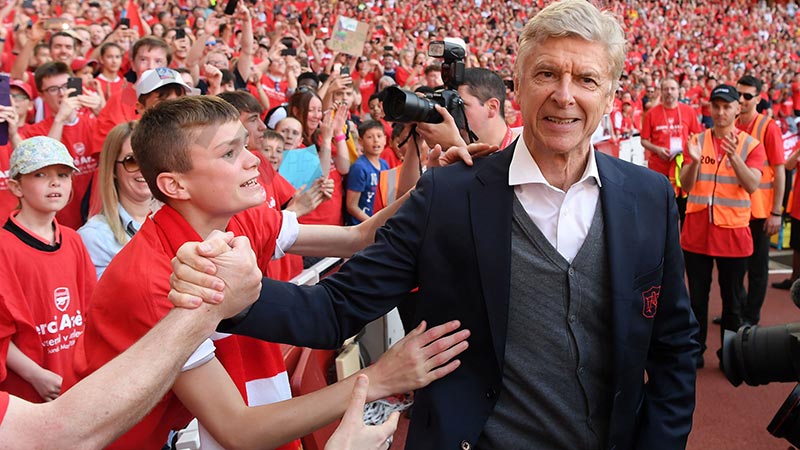
After a modest playing career at various amateur clubs, Wenger earned his coaching badges in 1981. Following an unsuccessful spell at Nancy in 1987, Wenger joined Monaco. The club won the league in 1988. In 1991, Wenger led Monaco to victory in the Coupe de France. In 1995, he moved to Japan to coach J.League side Nagoya Grampus Eight, where he won the Emperor's Cup and the Japanese Super Cup in his first and only year.
Throughout his managerial career, Wenger trusted his players to perform and learn from their mistakes, a quality that Vieira considered both his greatest strength and his greatest weakness. Wenger encouraged his athletes to use intuition and observation rather than to give explicit orders. Campbell reflected that his former manager "put a lot of emphasis on players changing the game" and "he wanted certain players – especially in the final third – to be able to create and offer something different." When Wenger joined Arsenal, he spoke of wanting to see "real, modern football. That means neat passes, areas, quick movements, and combinations with good technique." He was characteristically focused on the strengths of his teams, rather than looking for areas to exploit in his opponents.
Conclusion
The legacy of the best football coaches of all time lies not only in their remarkable achievements but also in their ability to inspire players, innovate strategies, and redefine the sport's essence. From Sir Alex Ferguson's unmatched trophy haul to Pep Guardiola's tactical brilliance, each coach has left an indelible mark on football history. Figures like José Mourinho, with his "Special One" charisma, and Arsène Wenger, with his transformative influence at Arsenal, showcase the diverse approaches to football management. Coaches like Jürgen Klopp and Diego Simeone bring passion and resilience to the game, while legends like Carlo Ancelotti and Marcelo Bielsa exemplify strategic mastery and commitment to football's evolution. These extraordinary individuals have shaped generations of players and fans, ensuring their place in the annals of football as timeless icons of excellence.







